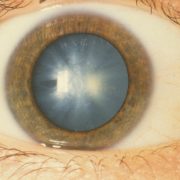I read somewhere that over 70 years ago Sainsbury’s opened its first self-service supermarket which started a whole new culture in retail.
Self-service has since become the norm but when it was first introduced at the Croydon branch it was such a novel concept that they had to issue instruction leaflets to shoppers to explain how the system worked:
“As you go in, you are supplied with a special wire basket to collect your purchases as you go round.
“As you go out you pay and get a receipted bill and your purchases are transferred to your own shopping bag.”
Before this, shoppers would pass their grocery list to a clerk who would put items together and pack them.
Now, for the first time these shoppers did their own choosing. This changed the retail scene forever and paved the way for:
- Product placement to tempt impulse buys
- Greater use of Multi-Buy offers
- Brand merchandising leading to more choice and competition.
The empowerment of shoppers
As shoppers we’ve all become much more empowered and savvy when finding the best deals and many traditional modes of shopping are on the decline.
Most of us would be lost without the convenience and comfort of shopping online. Whilst technology (online shopping, click and collect, home delivery) can be hugely beneficial it can also be impersonal.
Observing shoppers at my local supermarket, I have noticed that the queue for the human operated checkouts are always full even if the fully automated checkouts are free. It seems we like a fellow human to scan our items and take our payment.
These transactions might be peppered with a chat about the weather or an interesting item in the shopping trolley.
I’m often asked how I cook the tofu that finds its way into my shopping list from time to time. Once I even got accused by the checkout lady of not knowing how to make chapattis because I had tortilla wraps in my basket!
These social exchanges are light-hearted but might be the highlight of someone’s day.
Sometimes too much choice is overwhelming. Scanning shelves of similar looking products will often leave a consumer scratching their head in confusion. The easiest way to buy becomes based on price and product placement, all tactics used by retailers to get certain products in our shopping baskets.
Does self-service cut it?
When it comes to products that require expert advice, self-service doesn’t really cut the mustard.
In the age of online shopping Apple stores are a big hit precisely because of the advice and experience they offer. When things go wrong with your Apple device or you want a new product, you can visit the store and let someone help you face to face.
Google has followed their lead by opening brick-and-mortar stores. Google’s entire mode of operation is online. It makes billions from selling online advertising.
However to encourage more people to go digital Google has opened a shop with four walls and a door and installed human beings to provide personal service and training – all because they’ve realised the power of providing a face to face skills service.
We think shopping for eyewear should be an immersive experience, where you get to sit down, enjoy a coffee, talk about what you really want from your glasses. Rather than being left to scratch your head in front of rows of similar looking eyewear or buying glasses virtually, we listen, consult and guide you to find glasses that suit your needs and lifestyle.
One thing that’ll never change is our desire to interact with one another. And so I think today and in the future personal and attentive service with a human touch will be the next ground-breaking trend!














